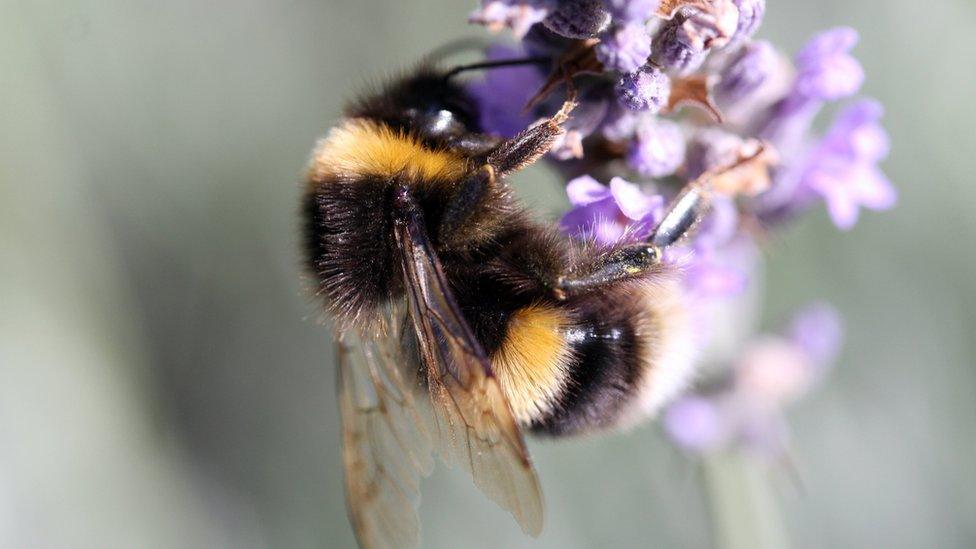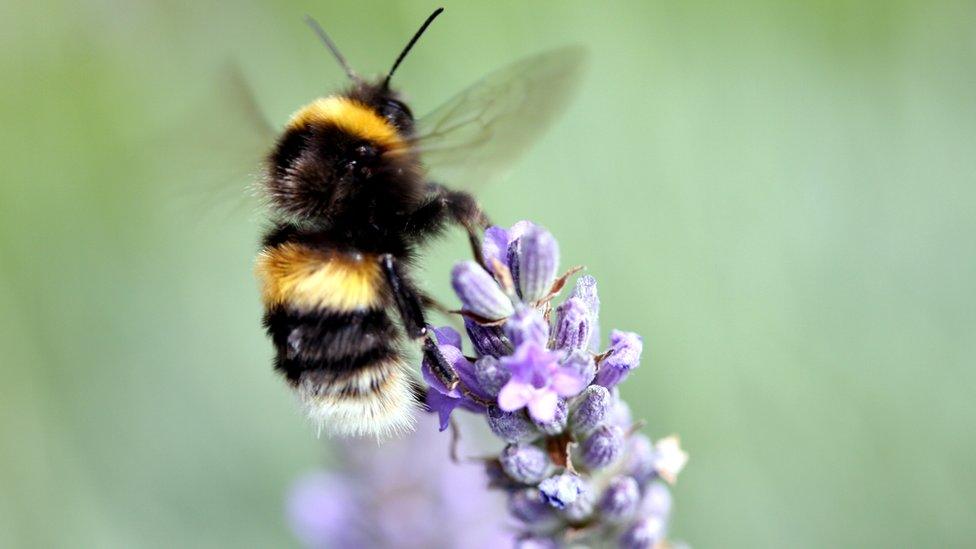Pollinator research to take place across Channel Islands
- Published

The funding will allow for four years of research on pollinating insects in Jersey, Guernsey, Alderney and Sark
A project to evaluate and compare pollinator populations across the Channel Islands has begun.
About £1m of funding was secured as part of a collaboration between the Pollinator Project and the University of Bristol.
The funding will allow for four years of research on pollinating insects in Jersey, Guernsey, Alderney and Sark.
The Pollinator Project said it would showcase the Channel Islands as a world leader in the research area.
'Microcosms of the world'
Prof Jane Memmott, head of the UK research team from Bristol University, said findings would support further research globally.
"Islands can be viewed as microcosms of the world, large enough to be realistic, but small enough to be tractable for study," she said.
"I'm really excited to be working with a team on the Channel Islands for the next four years on pollinators and pesticides."
The programme will look at beneficial inspect populations including bees, butterflies, wasps, flies, beetles and moths over the four years.
It will also seek to answer questions about the impacts of pesticides on pollinators, with the aim of supporting conservation in the future.
Dr Miranda Bane, who is heading the Guernsey research, said she had "always been inspired" by the island's "beautiful nature".
"To be able to bring research expertise on pollinators back to the islands, to help protect and enhance our natural environment, has been my goal since choosing an academic career," she said.
The funding has been provided by the Natural Environment Research Council in the UK.

Follow BBC Guernsey on Twitter, external and Facebook, external. Send your story ideas to channel.islands@bbc.co.uk, external.
- Published9 April 2023

- Published6 July 2022